Remote work: “It will be extremely difficult and challenging – managers will be put through the hoops”
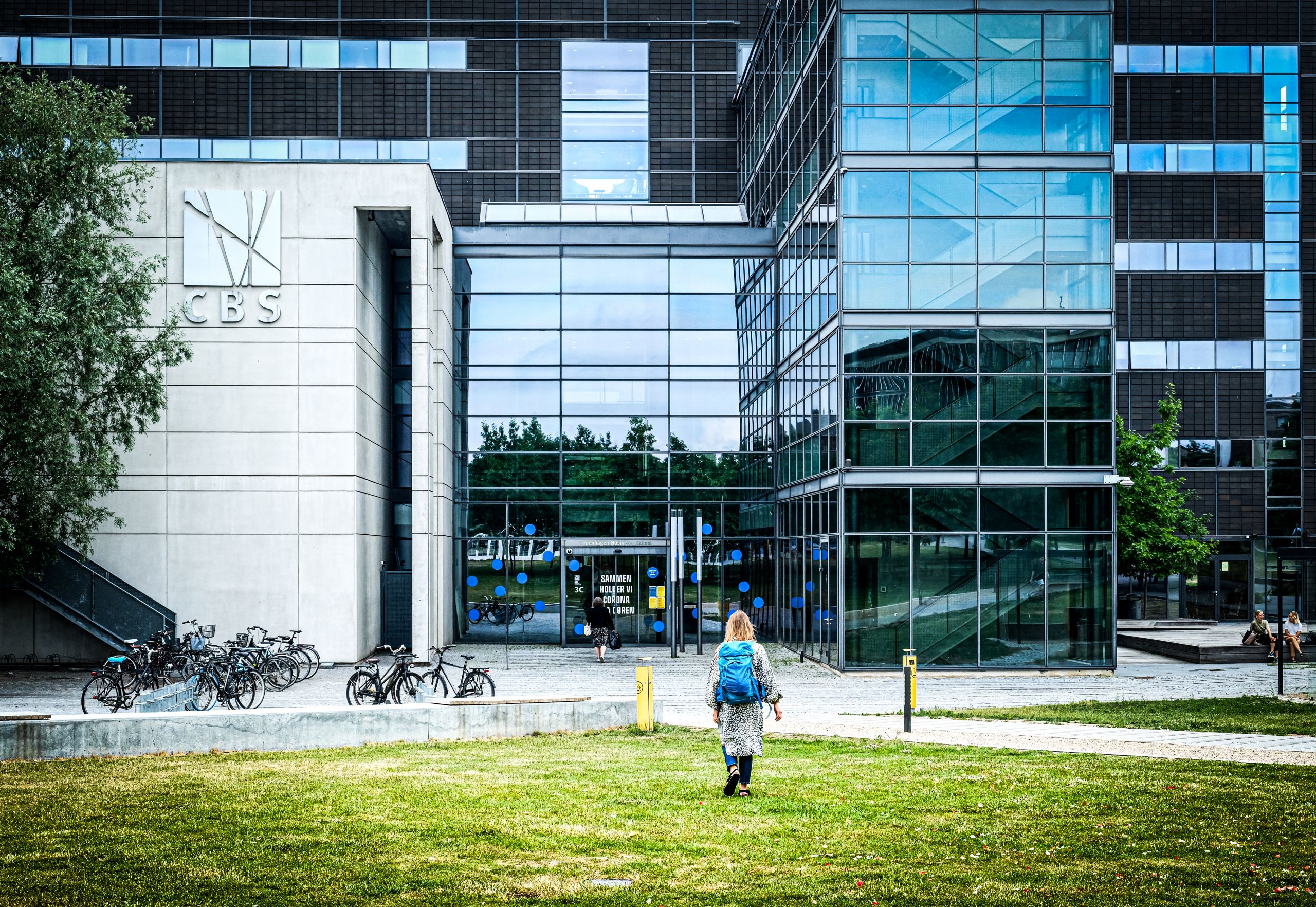
(Photo: Anna Holte)
As all staff members return to campus, a balancing act will begin to unite individual and organizational expectations for remote work, point out two managers and a researcher at CBS. They all agree that remote work is a good opportunity, to some extent, but it requires flexibility at both ends.
From August 2 onwards, all employees at CBS are allowed back on campus to work. This is where I am when I call Associate Professor, Peter Holdt Christensen from the Department of Management, Politics and Philosophy.
He joins the interview on Teams. Not from his office in Porcelænshaven, but from home.
“The office is quite empty at the moment, as many researchers are still away on holiday, so I might as well just work from home,” he says.
The situation of some employees being at work whereas others are working from home, or anywhere outside CBS, will be the new normal starting from this semester. And in order to orchestrate the employees’ preferred working routines, while ensuring that tasks are solved and the feeling of collegiality endures, CBS has released a new policy on remote work, which sets the scene for a more flexible work life.
“In the space of a very short time, how employees and managers view work has radically changed. And although remote work as a concept has been around for decades, it has never really been generally accepted in Denmark or at CBS. Although it has been brutal and traumatizing, we needed a crisis in order to rethink how we view work,” says Peter Holdt Christensen, who was a member of the sub-committee that identified what factors and issues the policy should cover.
One of the ultimate challenges employees and, especially, managers will face is how to coordinate creating a functioning workflow with employees scattered in and outside CBS, Peter Holdt Christensen explains.
“It will be extremely difficult and challenging – managers will be put through the hoops. They will have to make it attractive to come back to the workplace. There’s nothing more demotivating than coming back to work, just to realize that your workplace is empty,” he says.
Bitta Nielsen, Director of the Study Administration, has more than 100 employees in her department, and she views remote work as an opportunity for more flexibility, but it comes at a cost: more and better coordination.
“It’s important that we have some set structures, otherwise meeting your colleagues will become too random. We have therefore agreed that employees can have one or two days a week for remote work, but once a week everyone will have to meet on campus,” she says and continues:
“Remote work allows flexibility, but it requires discipline as well, as it can make planning meetings more complicated and demands good coordination.”
“Not everything works perfectly”
René Steffensen, Director of Library and Campus Services at CBS, has not finished discussing the possibilities for remote work with his managers and employees, as the policy for remote work was published right before the summer break. However, he has asked everyone to meet on campus when they return from vacation.
Right now, I’m planning my teaching for the semester, and already the students are asking me whether the lectures will be recorded so they don’t have to show up on campus. And it’s the same for the employees
Peter Holdt Christensen
“We have been on campus intermittently since May. Now, that everyone is back, we can get together and thoroughly discuss the possibilities and expectations linked to remote work,” he says and continues:
“When we were all ordered home in March 2020, we initially thought it would be for just two weeks. It wasn’t. Along the way, we have realized that we could make many things work remotely and have gathered a lot of good experience. But we must also acknowledge that not everything works perfectly, and some employees have had a tough time and haven’t been thriving at all.”
In René Steffensen’s two units, many of the tasks require being present on campus. The buildings need maintenance, and the library offers various types of service that can only be handled in person. Therefore, he foresees that expectations regarding remote work might collide with reality.
“We must prioritize who cannot work from home, who can and when. And we must consider how much remote work the organization and local managers can cope with, considering the social and professional benefits of life on campus. But first and foremust, we must test the grounds for remote work,” he says and continues:
“We will be having conversations with each employee about their expectations and wishes for remote work and will decide from there what we can do. But I probably won’t be offering everyone one or two days of remote work a week as a standard offer, as I don’t want to retract that offer and disappoint any employees.”
Is this meeting online or on campus?
Since 2013, Peter Holdt Christensen has explored remote work as an area of research, and now that almost everyone has become acquainted with it, he is interested in seeing how it will unfold in the months to come.
He draws a parallel between his students and teaching.
“Right now, I’m planning my teaching for the semester, and already the students are asking me whether the lectures will be recorded so they don’t have to show up on campus. And it’s the same for the employees. Suddenly, everything is up for negotiation. Will this or that meeting be on campus or online – or both? We have expanded the pallet of tools, and it will be challenging and resource-intensive to manage,” he says.
When we are together, we get the social connection and feel each other’s presence, and we need to restore that feeling after spending months at home
Bitta Nielsen
In his view, both the employees and managers will have to be flexible and ready to seek compromise in the months ahead. Not only for themselves as individuals, but also for the sake of the organization or department.
“As an employee, it’s nice if I can skip two hours of commuting by working from home. But it’s important to keep the wellbeing of the organization in mind, as well. So show up for the meetings at the office, and compromise on individual needs,” he urges.
In the time to come, Peter Holdt Christensen is curious to see how students and employees will behave. Has everyone become so fed up with working from home that they will attend campus every day, or will it be too tempting to stay at home?
“When I taught on campus, I felt a different type of energy and presence from the students, but now I’m curious to see whether it will be the same when they come back, or whether they will be annoyed about having to show up on campus. And it could be the same for the workplace,” he says and continues:
“In the beginning, most people will probably be excited about being allowed back to see each other, but maybe after two days, people may have had enough of commuting, and want to be back home. Some will think that Teams meetings weren’t that annoying after all. No matter what, I believe we are seeing a permanent change in our view of work.”
Bitta Nielsen says that as the semester progresses, the current plan and structure for remote work will be evaluated and adjusted if necessary. But in her view, physical presence will still be an important aspect of working.
“When we are together, we get the social connection and feel each other’s presence, and we need to restore that feeling after spending months at home,” she says.



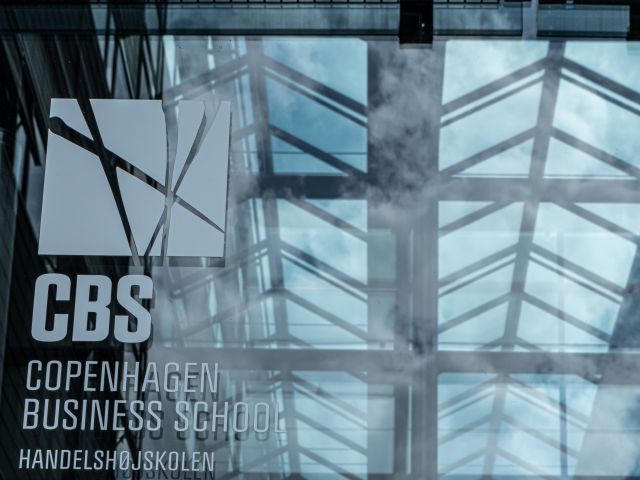

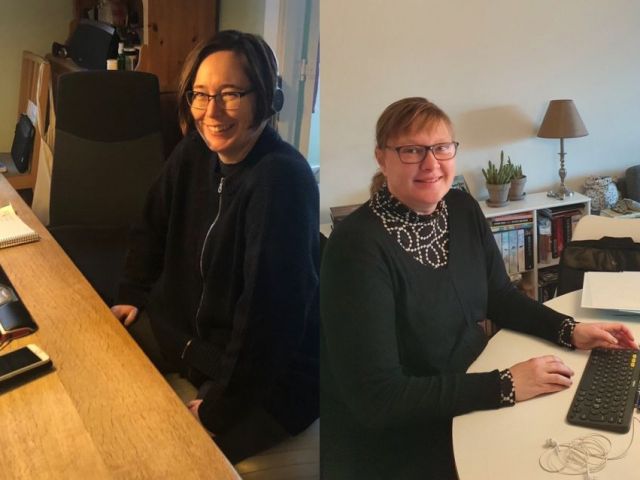

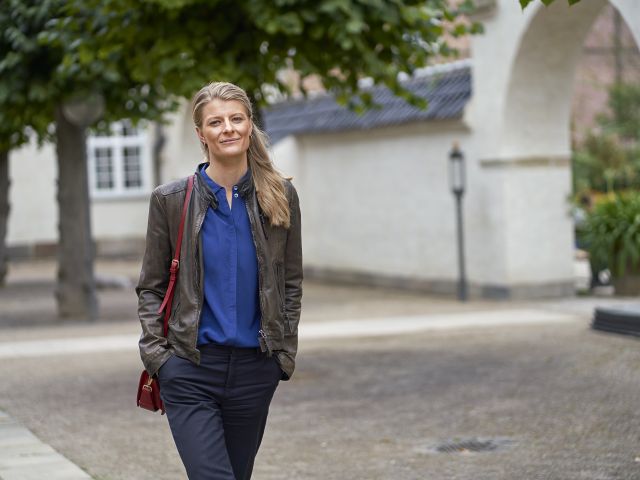
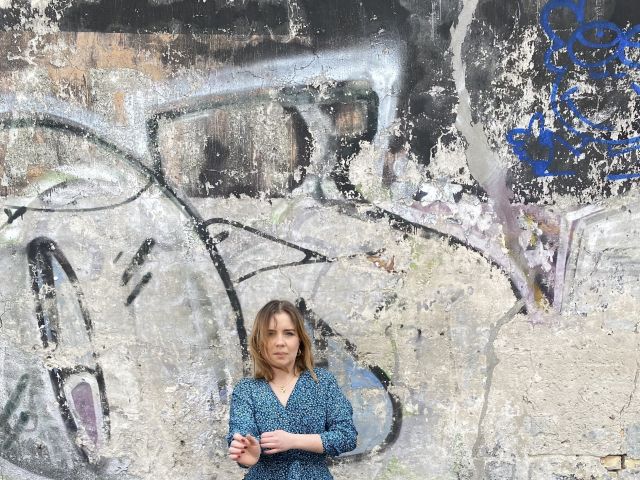






























































































































Comments